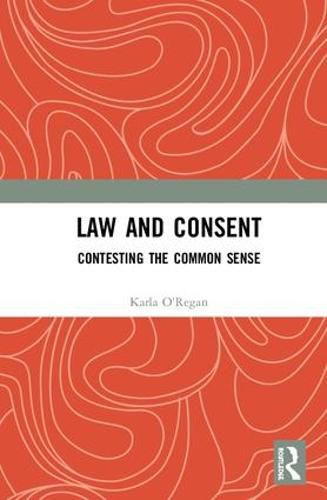Readings Newsletter
Become a Readings Member to make your shopping experience even easier.
Sign in or sign up for free!
You’re not far away from qualifying for FREE standard shipping within Australia
You’ve qualified for FREE standard shipping within Australia
The cart is loading…






Consent is used in many different social and legal contexts with the pervasive
understanding that it is, and has always been, about autonomy - but has it?
Beginning with an overview of consent’s role in law today, this book investigates
the doctrine’s inseparable association with personal autonomy and its effect
in producing both idealised and demonised forms of personhood and agency.
This prompts a search for alternative understandings of consent. Through an
exploration of sexual offences in Antiquity, medical practice in the Middle Ages,
and the regulation of bodily harm on the present-day sports field, this book
demonstrates that, in contrast to its common sense story of autonomy, consent
more often operates as an act of submission than as a form of personal freedom
or agency. The book explores the implications of this counter-narrative for the
law’s contemporary uses of consent, arguing that the kind of freedom consent is
meant to enact might be foreclosed by the very frame in which we think about
autonomy itself.
This book will be of interest to scholars of many aspects of law, history, and
feminism as well as students of criminal law, bioethics, and political theory.
$9.00 standard shipping within Australia
FREE standard shipping within Australia for orders over $100.00
Express & International shipping calculated at checkout
Stock availability can be subject to change without notice. We recommend calling the shop or contacting our online team to check availability of low stock items. Please see our Shopping Online page for more details.
Consent is used in many different social and legal contexts with the pervasive
understanding that it is, and has always been, about autonomy - but has it?
Beginning with an overview of consent’s role in law today, this book investigates
the doctrine’s inseparable association with personal autonomy and its effect
in producing both idealised and demonised forms of personhood and agency.
This prompts a search for alternative understandings of consent. Through an
exploration of sexual offences in Antiquity, medical practice in the Middle Ages,
and the regulation of bodily harm on the present-day sports field, this book
demonstrates that, in contrast to its common sense story of autonomy, consent
more often operates as an act of submission than as a form of personal freedom
or agency. The book explores the implications of this counter-narrative for the
law’s contemporary uses of consent, arguing that the kind of freedom consent is
meant to enact might be foreclosed by the very frame in which we think about
autonomy itself.
This book will be of interest to scholars of many aspects of law, history, and
feminism as well as students of criminal law, bioethics, and political theory.